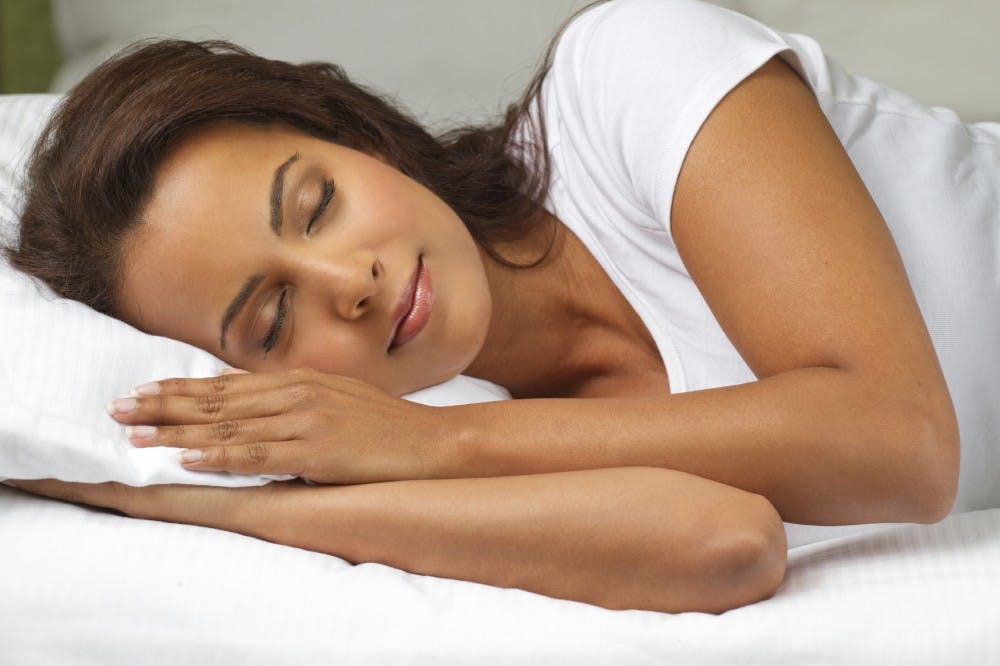It's two weeks in to a new year, and we're already tired. This week, Street talks the science of sleep in the first installment in a new series on health. Hey, it can even be your bedtime reading.
Summer has come and gone. For some of you, summer meant full nights of sleep for the first time since winter break. For others, it meant the same old, “six hours is a good night” you had all last semester. Either way, it’s a new year. It’s a new chance to make friends and mistakes, ace rocks–for–jocks or fail an Orgo exam. And it’s a new opportunity to pick up the best, most enjoyable and easiest healthy habit you can: sleep.
Experts recommend young adults get seven to nine hours per night, but Penn undergrads report an average around 6.7. This increases the risk of everything from heart disease to breast cancer, having children of a lower IQ to a decreased sex drive. You might argue that you sleep in on the weekends to catch up, but turns out it doesn’t really work like that. Namni Goel, a doctor in the Department of Psychiatry at Penn, restricted the sleep of research subjects for five nights of the week. This allotted for two nights of recovery sleep, pretty accurately encapsulating a stressful week at Penn. She found that even with the recovery nights, the subjects still gained more weight and ate more calories than the control group.
The thing is, you’re all smart people. You know sleep makes you feel healthier, focus more clearly and generally be happier. So why do we still hear those dumb conversations everyday at Penn between two friends competing to see who got the least amount of sleep? “Oh you were up till 2am doing an outline for writing seminar? Well if it makes you feel better, I was in the Hunts quiet study room till 4am and then had to get up for my 9am class in DRL.” Stop it! Or, if you’re a freshman, don’t start it! The phrase, “Well if it makes you feel better” never makes anyone feel any better unless it ends with, “I baked you cookies.”
Sleep is amazing. Scientists can’t even pretend to fully understand how it works. If you constantly find yourself cramming late at night and crashing the next day, maybe it’s time to try out being a morning person. They say college is the time for experimentation. The classic drug route is so overdone. Be different and experiment with getting up at 8am, doing some work before class and then going to bed early.
I know as well as you do: that’s much easier said than done. Penn actually knows that, too. While in the ideal world they’d respond to our systematic sleep deprivation by getting rid of all assignments, they took the next best step and created a “Sleep Well” program with Student Health. This program aims to increase the sleep quality of Penn students, since studies have shown quality is more important than quantity. Emily Paterson, the Master of Public Health intern working on "Sleep Well," highlighted the importance of “shifting the focus to sleep being a priority like you would plan for class or studying. If you make it out of Penn with As and you’re miserable, what good is that doing for you?”
Perks of the program include free welcome kits at Student Health. Pick one up for some hand sanitizer, tissues, earbuds and eye masks. All you have to do is fill out a super quick survey, and I know you’ve done worse things for free stuff. "Sleep Well" also offers sleep workshops that any student group can sign up for on the Student Health website and has a poster and social media campaign coming later in the fall.
Nobody’s saying it’s easy. Oversleeping without planning for it can be as stressful as staying up that extra hour. Coffee cannot sustainably substitute for a good night of rest. Yet, on the other hand, staying up late with friends is part of the fun of being at college and being surrounded by so many great people. We all just need to focus on finding the right balance between busyness and bed.
You can do it; we believe in you. And in the meantime enjoy Smokes’.... I’m going to sleep.

